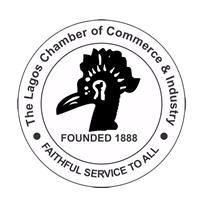LCCI urges FG to encourage private sector investment in infrastructural development

The Lagos Chamber of Commerce and Industry (LCCI) has call on Federal government to encourage and incentivize private sector to contribute to investment in infrastructural development just as it appealed to the government to ensure the proper coordination of various measures already put in place to cushion the effects of COVID-19 pandemic at both states and federal level.
Making the called Tuesday at a press briefing in Lagos, the President of the Chamber, Mrs. Toki Mabogunje, while commending the government on the various measures already put in place to cushion the effect of this pandemic both on individuals and buisnesses, expressed concerned that the current approaches used in implementing some of these measures would not yield the desired result.
She said there was need for restrategising and ensuring proper coordination both at the states and federal level.
LCCI boss while urging the government to focus on the completion of critical infrastructure projects nationwide such as the Lagos-Ibadan expressway, Lagos-Ibadan rail project, Enugu Airport, the Second Niger Bridge, East-West Road, among others, called for an upgrade of power and broadband infrastructure across the country in order to support ICT and digital economy.
These public goods, according to her, would have significant positive impact on commercial activities and businesses as they reduce cost of doing business and boost productivity.
“The private sector should be encouraged and incentivized to contribute to investment in infrastructural development…..We strongly urge engagement of the private sector by regulatory institutions and agencies of government in addressing national economic issues so that intended benefits are achieved for the common good,” she said.
While calling on Nigerians to imbibe creativity and innovation to overcome the effect of Covid-19; she also emphasized the importance and the competitive advantage of innovation and creativity.
“With the Covid-19 pandemic pushing the global economy (Nigeria inclusive) to the precipice, creativity and innovation in goods and services have become very imperative and necessary, perhaps the competitive advantage factor.
“Opportunities for productivity and economic optimization abound in sectors like healthcare, agriculture and food, manufacturing, ICT amongst others. The success or otherwise of Nigeria at this critical period will depend to a large extent on our ability to leverage on creativity and innovation to build a competitive economy and promote import substitution going forward. We however believe there is also need for sustained improved domestic productive capacity and human resources in priority sectors,” she said.
On domestic economy, she said “The Lagos Chamber of Commerce & Industry notes the sustained recovery of the Nigerian economy as GDP growth advanced to 2.55 percent in the final quarter of 2019, compared to 2.28 percent in the preceding quarter. We however also note the broad-based underperformance across key sectors such as agriculture, trade and manufacturing, with strong potentials to drive economic diversification.
“Following the fallout of the covid-19 pandemic, we see the short to medium-term outlook for the economy as bleak, as the pandemic has led to an unprecedented collapse in commodity prices, capital flight, turmoil in the capital market, supply chain disruption across sectors and destabilization of commercial and economic activities. Hence, we resonate with the International Monetary Fund’s position on a looming severe contraction of the economy by year end-2020.”
On inflation she noted that the continued uptrend in headline inflation since September 2019 when the Federal Government shut the land borders, official reports showed that consumer prices accelerated by 12.26 percent in March 2020, adding that this marks the seventh consecutive month of rising consumer prices – both food and core inflation accelerated by 14.98 percent and 9.33 percent respectively in March.
“We believe consumer prices, especially food, will come under pressure in coming months due to disruption to agriculture value chain and commencement of planting season, which is a period of reduced agricultural output. Also, the impact of currency devaluation and the recent increase in VAT rate will most likely make inflation trend higher in months ahead, “ she added.
On Socioeconomic and Business Impact of Lockdown she posited “The Lagos Chamber acknowledges the efforts of Federal Government, states, monetary authorities and organized private sector towards containing the covid-19 pandemic.
“While the containment measures were necessary to slow the spread of the virus, we observe that the lockdown had profound social consequences because of the weak mechanism to cater for the vulnerable groups in the society. The palliatives given by the various governments though laudable were not sufficient to address the social fallouts of the lockdown. The high level of informal activities in Nigeria suggests that millions of Nigerian households who survive on daily income for life essentials were severely affected by the lockdown.”




